MALAYSIA
While Malaysia is a well-known transit country for large quantities of illegal ivory, it has also emerged as a consolidation and re-packaging point for ivory consignments. Malaysia has been a country of primary concern since the NIAP process was initiated and has failed to demonstrate sufficient progress; trade suspensions must be considered under CITES if Malaysia fails to enhance risk-profiling and intelligence-led investigations resulting in prosecutions and anti-corruption efforts.



Is there a need to revise the existing NIAP or develop a new one? ‘YES‘

BEST PRACTICE
Malaysia has a strong legislative framework to tackle illegal wildlife crime, including organised criminal networks. In 2014, the Government recognised offences under the Wildlife Conservation Act 2010 and the International Trade in Endangered Species Act 2008 as serious offences for the purposes of anti-money laundering, anti-terrorism and proceeds of crime legislation.
In its rapid assessment of Malaysia’s response to wildlife and forest crimes, UNODC found that the country’s law enforcement is very active against domestic offenders (albeit mainly low-level couriers) and “given the right institutional context, it has the potential to step up its operations against transnational crime. However, it needs to improve the coordination between regional authorities and make better use of the nation-wide customs and police forces.” UNODC also found that “enforcement capacity in Peninsular Malaysia is particularly strong and includes good communications and the latest investigation techniques.”
However, despite that law enforcement activity, research suggests there have been very few convictions for ivory offences since 2014.
KEY CONCERNS
Major transit hub
Since 2009, Malaysia has emerged as the leading transit destination for large ivory consignments heading to markets such as mainland China, Hong Kong and Vietnam, resulting in Malaysia’s participation in the NIAP process. A vast quantity of ivory passes through Malaysia, demonstrated by the large number of seizures within the country and elsewhere that are linked to Malaysia. Since 2010, there have been 18 seizures within Malaysia (of which nine were large-scale and the largest was more than 6,000kg) and 34 seizures in other countries that were linked to Malaysia (both source and demand). Most of the seizures in other countries involved ivory that had already passed through Malaysia undetected. The ETIS report to CoP17 found that: “The scale of the trade directed to Malaysia remains a serious concern and has increased in the more recent period.”
Insufficient checks on goods in transit
It is highly likely that the amount of illegal ivory passing through Malaysia is far higher than the amount seized, due to poor examination of goods in transit. There are insufficient investigations and intelligence gathering to detect illicit shipments. The ETIS report to CoP17 recommended that Malaysia (along with Singapore) “needs to focus upon risk assessment, intelligence gathering and targeting with respect to containerised sea and air cargo moving between Africa and prominent destination locations in Asia; the use of controlled deliveries and sniffer dogs is another important consideration for supporting effective law enforcement.”
Increasing use as an entrepot/consolidation point
A recent and worrying development is that Malaysia is being used as an entrepot/consolidation point, using large quantities of African ivory that have been stockpiled within the country. The Hong Kong mega-seizure of more than seven tonnes of ivory (the second largest in ETIS) in July 2017 was packed in the interior of Malaysia; the container left the Port Klang and returned loaded for shipping to Hong Kong. Vietnam has also made a large seizure of ivory that originated from Malaysia (again, not transit). UNODC identified Malaysia’s role in consolidation and re-export activities, assisted by “at least some complicity from officials in the supply chain.” EIA investigations also confirm that Malaysia is used by organised criminal syndicates to consolidate and repackage large-consignments of ivory for onward export to Vietnam; further prolific ivory traffickers are working closely with corrupt customs officials at Johor port to facilitate large-scale wildlife trafficking. Therefore, Malaysia’s role is no longer restricted to that of a transit country. It is critical that Malaysia’s law enforcement efforts extend beyond their ports and transit trade.
Lack of convictions
Despite the high number of seizures in country, including several large-scale seizures, there have been very few convictions and none in relation to ivory trafficking via the sea route. During a period of just over 11 years, between January 2003 and February 2014, Malaysia made 19 seizures totalling close to 15 tonnes of ivory, yet not a single arrest or prosecution followed.A few prosecutions have happened more recently but law enforcement efforts need to be increased significantly. Malaysia’s NIAP progress report submitted in 2017 indicated a list of foreign nationals refused future entry into Malaysia due to their involvement in wildlife smuggling; however it is unclear how many of these suspects were prosecuted and convicted under Malaysian laws and whether this included any mid-high level ivory traffickers.
Almost all of the seizures made in Malaysia were based on intelligence from other countries, indicating a degree of collaboration, but Malaysia needs to cooperate to a much greater extent with other countries along the illegal trade chain to gather intelligence to assist investigations.
RECOMMENDATIONS FOR NIAP REVISION / PRIORITY AREAS OF IMPLEMENTATION:
If Malaysia fails to demonstrate adequate progress by 2019, the CITES Standing Committee should consider the application of CITES trade suspensions against Malaysia.
- Significantly improve detection of ivory in transit by sea and air, including by use of sniffer dogs and scanners and intelligence-led enforcement
- Employ risk indicators and profiling to investigate organised criminal networks operating within the country, rather than focusing on low-level offenders
- Cooperate more closely with source and destination countries to gather intelligence on criminal networks and traffickers to assist detection activities, both at and beyond air and sea ports
- Increase prosecution in relation to all ivory seizures, including large-scale seizures, that have already taken place in Malaysia
- Improve coordination between regional authorities and make better use of the national customs and police forces
- Make use of controlled deliveries in close collaboration with relevant countries along the illegal trade chain
Key indicators of NIAP progress
